News

28/02/2022
A recent FAO publication describes how certain food safety considerations need to be taken into account to ensure acceptable health outcomes in situations where the impact of food insecurity is mitigated through food aid.
Food security exists when people, at all times, have access to sufficient, safe, and nutritious food to meet the dietary needs for a productive and healthy life. Therefore, food safety is closely interlinked with food security.
In times of food insecurity, brought on by conflicts, natural disasters and climate crises, humanitarian relief in the form of food assistance is often distributed by specialized organizations, such as...
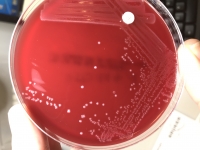
09/02/2022
In a Codex podcast, Dr Tim Barkham, Associate Professor at the Tan Tock Seng Hospital in Singapore, delves into how a new strain of Group B Streptococcus (GBS) was discovered and, with drive and determination, found to be linked to raw freshwater fish. The specific strain responsible for an outbreak in Singapore in 2015 was Streptococcus agalactiae sequence type 283 (ST283).
Barkham was one of 24 experts who contributed to FAO work on the risk of this invasive GBS in freshwater fish. Dr Masami Takeuchi, FAO Food Safety Officer who led the work, said that conducting a risk assessment has been impossible because...

08/02/2022
FAO will host a webinar on 17 February 2022 to introduce a new project that will focus on the implementation of Codex standards to support the containment and reduction of foodborne antimicrobial resistance (AMR).
The Codex Alimentarius, or food code, now has three AMR-related texts:
the revised Code of Practice to Minimize and Contain Foodborne Antimicrobial Resistance (CXC 61-2005)
new Guidelines for the Monitoring and Surveillance of Foodborne AMR (CXG 94-2021)
Guidelines for Risk Analysis of Foodborne Antimicrobial Resistance (CXG 77-2011).
The project will facilitate the implementation of these Codex standards in six countries to help build effective national systems to minimize and contain the...

02/02/2022
Food biotechnologies may raise a number of questions whose answers may not always be easy to find. In fact, national food safety competent authorities are often asked by consumers and other stakeholders to provide science-based information in a way that is quick and easy for non-experts to understand, which requires technical knowledge, dissemination outlets, diverse skillsets and time.
Upon Members’ request, FAO has published the “Information toolkit on food biotechnologies with a focus on food safety”, which serves as a basis to assist countries in addressing the general public’s concerns on food biotechnology and food safety, to support them...

31/01/2022
What is JECFA?
The Joint FAO/WHO Scientific Advice Programme is one of the longest standing collaborations within the UN system. The Joint (FAO/WHO) Expert Meeting on Food Additives (JECFA) is an international expert scientific committee that is administered jointly by the Food and Agriculture Organization of the United Nations (FAO) and the World Health Organization (WHO). The first meeting of JECFA took place in 1956 and JECFA has continued to be in operation ever since.
Over the years the requests from the Codex Alimentarius Commission to JECFA for scientific advice have gone from solely food additives in...
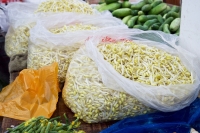
27/01/2022
Sprouted seeds or beans, such as alfalfa; mung bean; pea to name a few, are tender, young plants that deliver on taste and crunch. Like other fruits and vegetables, they contribute to a heathy diet and are important ingredients in cuisines from around the world. Yet, they are not grown or produced like other fruits and vegetables. The growing conditions for sprouts are ideal for the proliferation of foodborne pathogens, including Shiga toxin-producing Escherichia coli (STEC); Salmonella spp.; and Listeria monocytogenes.
As such, a subset of experts from the Joint FAO/WHO Expert Meeting on Microbiological Risk Assessment (JEMRA) convened a meeting in November 2021 that...
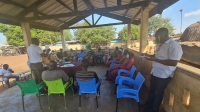
26/01/2022
Different parts of the world have their own – often very culturally specific – problems that also require local solutions. A person who is acutely aware of this is Blaise Ouattara, Food Safety and Quality Officer at the FAO Regional Office for Africa.
Faced with a number of issues in this vast territory – from the often-unsanitary handling and preparation of meat to difficulties in obtaining potable water – Blaise and his team of on-the-ground experts work tirelessly to change things for the better.
“It can be a long process,” Blaise reflects. “Changing peoples’ ways of doing things is not easy. [Yet]...
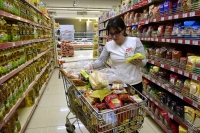
13/01/2022
The Food and Agriculture Organization of the United Nations (FAO) and World Health Organization (WHO) experts convened another successful meeting on food allergens. This was the final session of a three-part consultation on risk assessment of food allergens to help guide the future work of the Codex Alimentarius Commission. In previous meetings, the experts:
achieved consensus on a recommended revision to the list of global priority allergens; and
established threshold levels for these priority allergens in foods and reviewed available analytical capabilities for the monitoring of food allergens.
More information on these two previous meetings is available here and
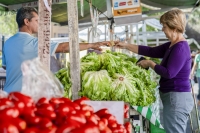
24/11/2021
Fresh fruits and vegetables are an important part of a healthy diet and are protective against many chronic health conditions. Yet, fresh fruits and vegetables contaminated with foodborne pathogens (e.g. bacteria, viruses, protozoa, helminths) have resulted in numerous outbreaks of foodborne disease and trade disruptions around the globe.
The Joint FAO/WHO Expert Meeting on Microbiological Risk Assessment (JEMRA) convened a meeting this year to compile and analyse the relevant scientific data and evidence on preventing and controlling the microbiological hazards in fresh fruits and vegetables, including pathogenic E. coli in leafy vegetables. The scientific advice and expert recommendations generated from this...

19/11/2021
Just as World Antimicrobial Awareness Week (18-24 November) opens, the 44th session of the Codex Alimentarius Commission (CAC) closes with two momentous international decisions on reducing antimicrobial resistance (AMR). Over the course of four years, the Ad hoc Codex Intergovernmental Task Force on Antimicrobial Resistance (TFAMR) developed science-based guidance on the management of foodborne antimicrobial resistance, reviewing and revising the Code of Practice to Minimize and Contain Antimicrobial Resistance (originally adopted in 2005) and developing Guidance on Integrated Monitoring and Surveillance of Foodborne Antimicrobial Resistance. The Codex Alimentarius Commission has now adopted the Code of Practice and Guidance, incorporating them...
Stay up to date and connect to our RSS feed!
